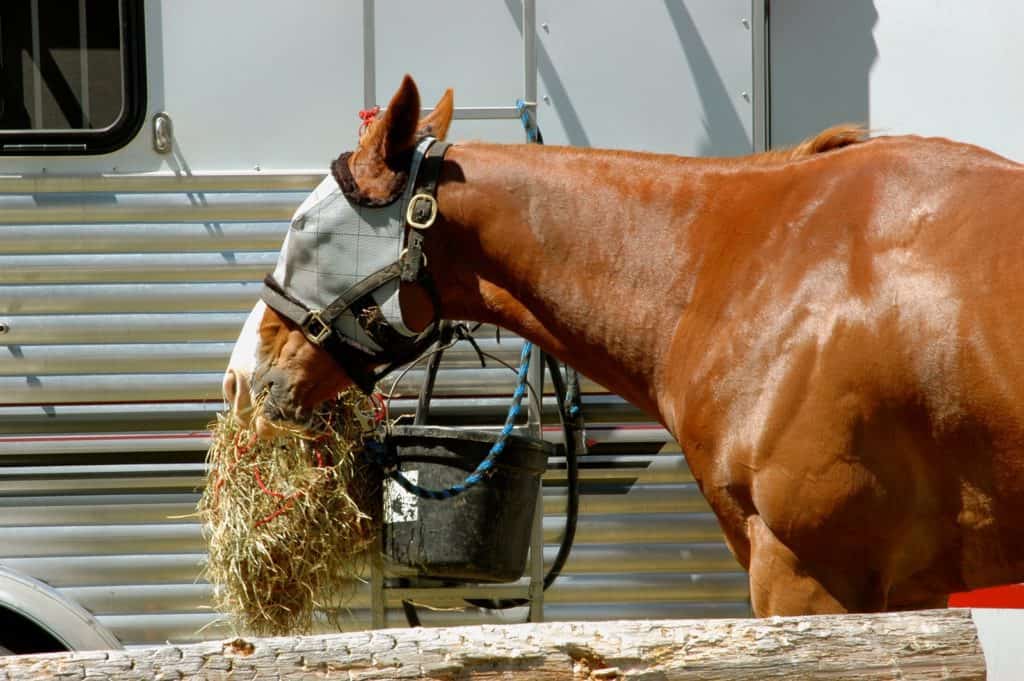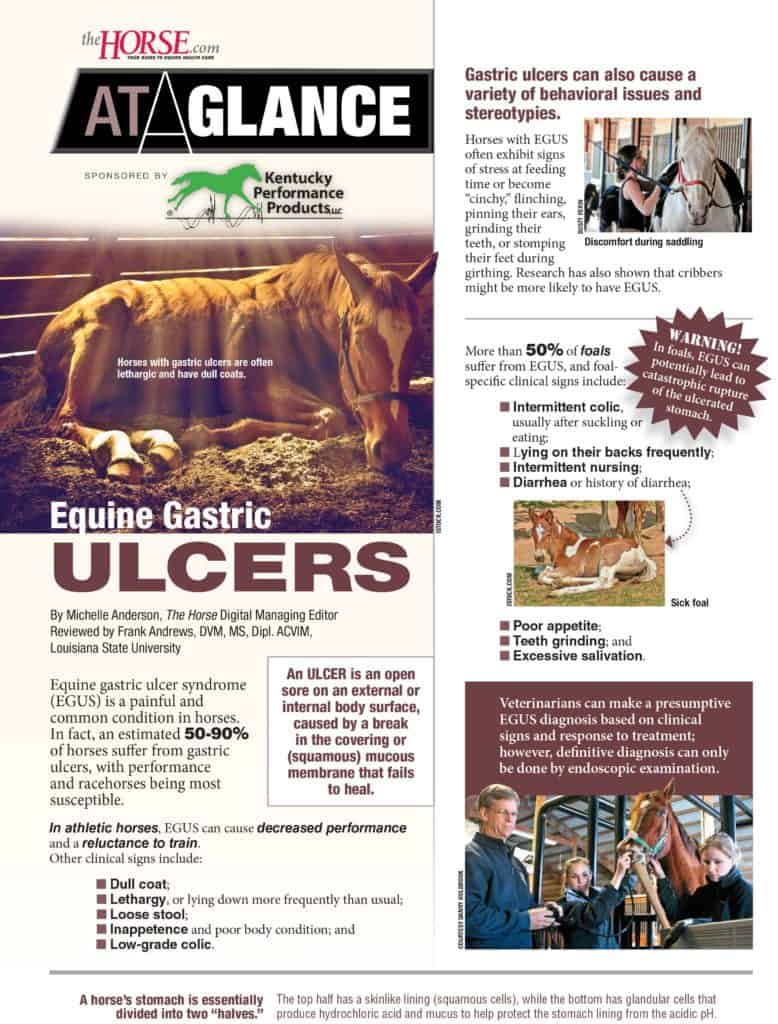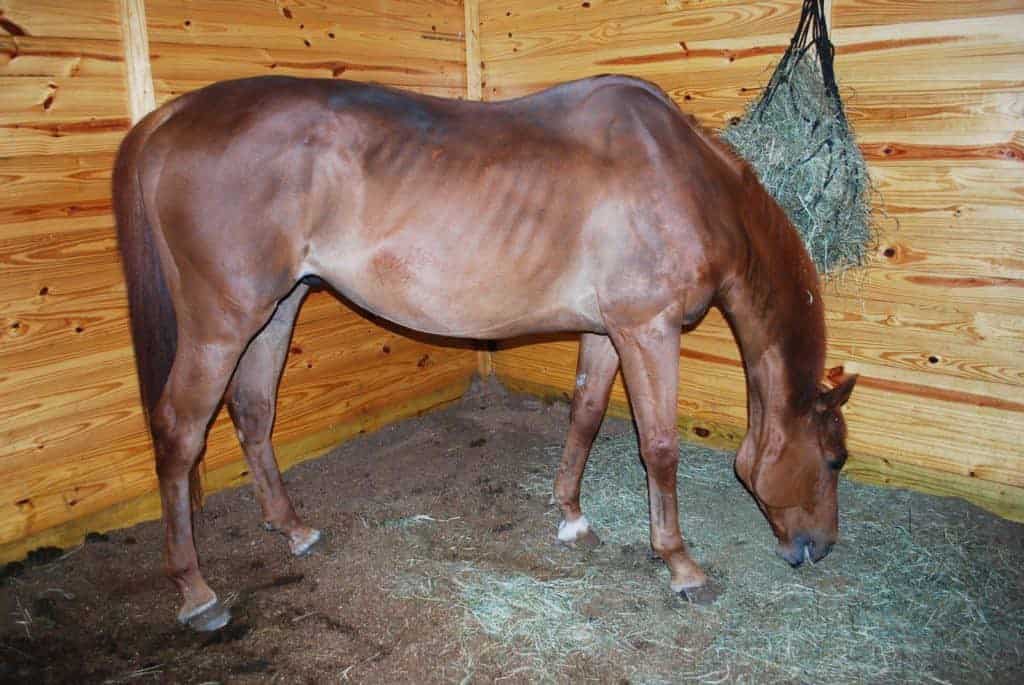
Genomewide Study Identifies Arabian Horses’ Risk for EMS
Researchers say this seems to confirm lore that some horse breeds are more susceptible to EMS than others.

Researchers say this seems to confirm lore that some horse breeds are more susceptible to EMS than others.

Travel stress can lead to gastric ulcers and colic. Use these strategies to help keep your horse healthy away from home.

Equine gastric ulcer syndrome (EGUS) is a painful and common condition in horses. Download this free guide to learn more!

Our sources share nine ways to help your sport horse perform at his best.

Horses are more prone to digestive upset than other domestic animals because of how their GI tract functions.

An equine nutritionist offers tips for reducing your horse’s pasture intake with a grazing muzzle.

Researchers are learning more about how microbes within the gut influence horse health.

Researchers explored if hyperinsulinemia and laminitis severity are correlated in horses recently diagnosed with PPID.

In most cases, energy requirement recommendations are an estimate of what a horse needs.

Have you increased your horse’s workload this spring? Find out how to safely increase his energy intake to match.

How many trot sets and calories does a horse require to get Rolex-ready? Join “Forty” as he preps for the grueling test.

Balanced nutrition and exercise can help horses with type-1 PSSM lead active, healthy lives.

Our staff and sources offer ways you can save time during feeding time.

Carbohydrates are the main source of dietary energy for horses and are important for fast, quick-burning power.

Performance horses need customized diets to meet their energy requirements, as hay alone likely won’t suffice.

Fat is an energy powerhouse that is a horse’s most abundant energy source.
Stay on top of the most recent Horse Health news with
"*" indicates required fields